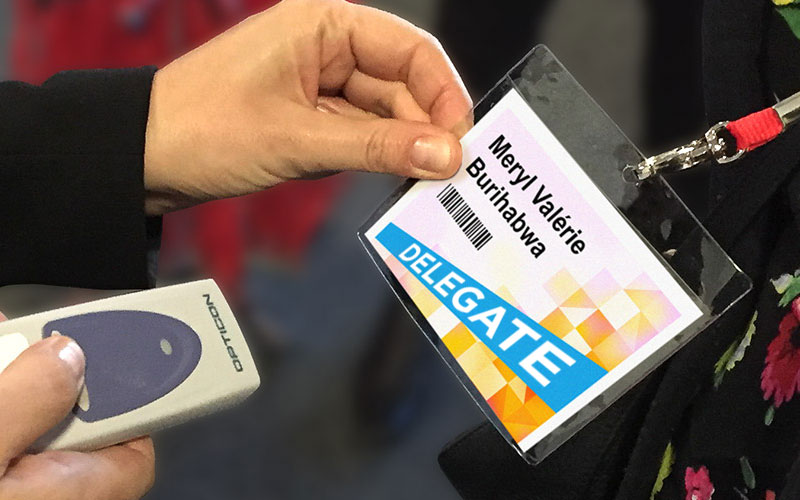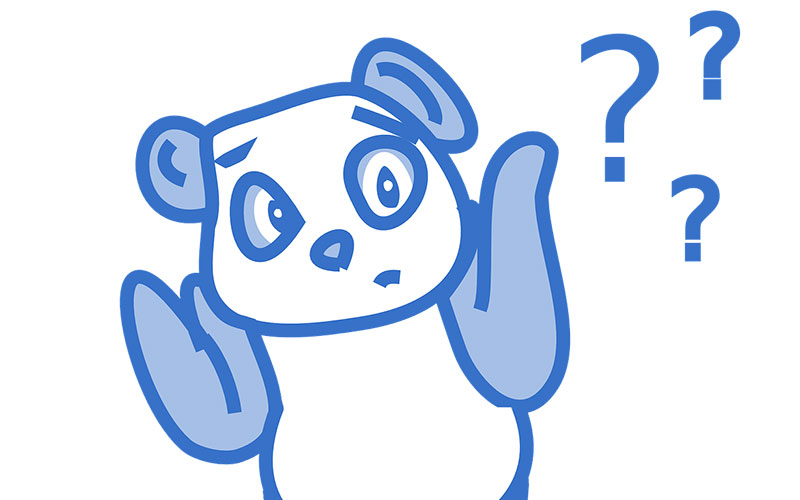Top tips for a successful association meeting
Part II
Part I of this blog covered where to start, now we are sharing tips 5 to 9 in Part II, if you did miss Part I you can view it here.

5. Who was there? What did they do?
You're almost certain to want to know who actually showed up. This is where a good badging system fits in. They have a variety of functions:
However, the starting point is to make sure that everybody has a badge with a barcode. These can be sent out in advance or printed on demand. Even if they're sent out in advance, you'll need to have a printing capability onsite to cope with the people who leave their badges in the office or lose them in the restaurant they went to last night.
Then you'll want to scan into the overall event because that will enable you to report on how many people were there. If necessary, you'll also be able to report on who went and, sometimes even more important, who registered but didn't show up.
Then, if delegates earn CPD credits either for attending the overall conference or for attending specific sessions, you can have scanning in place at the entrances to sessions. It's even possible to scan in and out so that you can confirm that delegates attended the full session and didn't just get their badge scanned in and leave soon after.
It's even possible for the scanning and reporting to be done in real time so that a delegate can go to a central CPD desk to collect their certificate of attendance as soon as the session finishes.

6. What about food and drink?
Obviously, this is another area that will vary depending on your delegates.
If it's a simple in-house conference, you might provide only sandwiches, tea and coffee. If you are providing more extensive food and drink, though:
If you have a sponsor for coffee breaks, they might want to offer something a little more impressive than packets of biscuits.
Lunch these days will probably be provided with soft drinks only. For lunch a buffet will probably be fine but if that's what you're offering and there's going to be a session after lunch, make sure there will be enough serving points and a long enough break for everybody to be fed.
If lunch is part of the delegate package and paid for as such, you might want to be able to scan people into the lunch queue to make sure that they only get one lunch.
Dinner will usually be silver service. When you're considering menus, remember that you cannot be certain that the dinner will start on time. For that reason, choose a starter that can be prepared and plated in advance. The main course is going to be safest if it's a dish with a sauce such as chicken supreme. If dinner is delayed, it can be kept moist. Obviously when your delegates confirmed their attendance, they told you about any special dietary needs and there are many of them these days so you have to be sure the venue can cope with all of the preferences.
Wine with the meal can be dealt with in various ways but the choice is generally between the attendees paying for their own and it being included in the price of the dinner. If it's included, there's no need to go for the best quality wine. Provided it doesn't taste like something best used for cleaning cutlery, house red and house white will probably be fine.
As with all aspects of organising an association conference, the main point on food and drink is to think it through very carefully and, if this is your first annual conference, talk to somebody who was at last year's event. Find out from them what was done, what worked and what didn't.

7. What about the content?
The chances are that the content will be determined by other people. They'll put out the call for papers, arrange the peer review process and draw up the schedule of presentations. If you have a poster exhibition, it's likely that they will also decide who's taking part in it.
One thing is worth trying to get over to the committee: no conference session should last for more than an hour without a break: you have to remember that the brain shuts down just a few seconds after the buttocks go numb.
When it comes to technology, try to avoid relying on an Internet connection. Venue Internet connections are much better than they used to be, but they can still fail. And it's one of the fundamental rules of meeting planning that if your conference depends on an Internet connection for its success, the connection will fail.
If possible, you should get the speakers to rehearse although this is much more difficult to achieve in an association meeting. Even so, if the content is important enough to get the delegates together, then it's important enough to get right. The only way to get it right is to rehearse. This is particularly true if it's a complex conference with a professional crew. They must rehearse and it's best done with the speakers.

8. Visuals? What visuals?
The element of the conference that used to be called speaker support and is now likely to be called PowerPoint, no matter what software is used to produce it, is probably out of your hands. You can provide guidance notes for the speakers suggesting basic rules for their slides, but you might not know that they've ignored all your advice until they stand up to speak.
The problem is that so many speakers put pretty much their whole presentation on screen and then, just in case the delegates can't see the screen, they read all the words aloud. Worse still they waffle on about something that seems to have no connection with the words on screen. Or they show a screen with so much going on that nobody has a clue what it's about.
However, it's likely that you won't be able to explain to an eminent professor that his PowerPoint slides need cleaning up.
Back in the days of 35mm slides association meeting planners used to have a speaker room where the speakers would take their slides before they went to the room where they were to present their paper. There's still value in this idea except that now speakers should take their USB stick to the speaker room. Once it's handed over, a technician can make sure that it's in the right format and it's ready to go.
The ideal solution then is for there to be a hired laptop in each room with the slide advance and slide back keys clearly identified. It's permanently hooked up to the data projector so that a technician can take the USB stick to the relevant meeting room, plug it into a laptop on the lectern and get it into a state where it's ready to go.
All the speaker has to do is to step up to the lectern and hit the right button to move the slides on. Most of them can manage that.
But this process avoids the hiatus that often occurs as a speaker is struggling to connect their laptop to the data projector.
As with everything else in organising an association conference, the important point in dealing with visuals is to tackle it in a methodical, logical manner.

9. What about the Tech?
The introduction of the smartphone has provided meeting planners with a technology that is both a curse and a measure of success. It's a curse because attendees need to be reminded to turn the things off when they're in meeting sessions. It's a measure of success because if the majority of the attendees are busy looking at their phones' screens, the presenter has lost them. But smartphones are part of the meeting landscape so there's little that can be done other than to ask people to turn them off at the beginning of each session.
There is then the habit in the meetings industry of hailing every new technology as a game changer, whether or not it will have an effect on meetings. We've had people extolling the virtues of AI, Big Data, Blockchain, Google Glass, facial recognition, iBeacons, RFID badges and any number of other technologies.
The answer here is very simple: let somebody else try out any new tech that's presented as a game changer. When others have proved its worth, then take a look at it.

10. Is that it?
There's obviously a lot more to think about if you're planning an annual conference: what we've attempted to do here is to cover some of the most important areas that you'll need to deal with if you've been given the job of organising one. We've drawn on our own extensive experience within the meetings industry (one of our directors organised his first meeting nearly 50 years ago) in order to provide some pointers that we hope will be of use to you.
Today we specialise in registration and badging services but, as you've seen, we understand the challenges that meeting planners face. If we can help you with registration and badging for your event, please call us on +44 (0)1827 61666 or email us on hello@reftech.com.